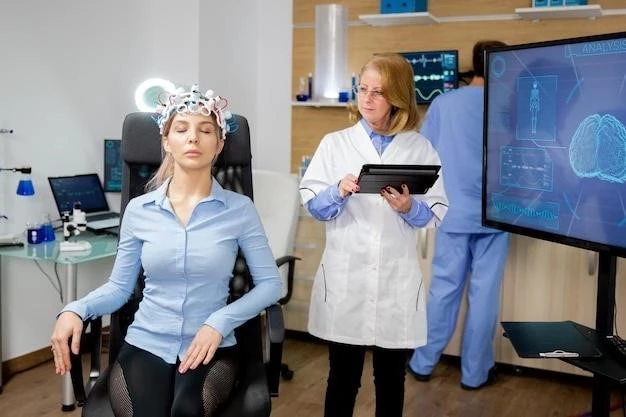Causes of Central Type Neurofibromatosis
The causes of Central Type Neurofibromatosis include Genetic Mutations‚ Family History‚ and Other Risk Factors.
Genetic Mutations
Genetic mutations in the NF1 gene are a key factor in Central Type Neurofibromatosis. These mutations can lead to the development of tumors in the central nervous system‚ causing various symptoms and complications.
Family History
A family history of neurofibromatosis increases the risk of developing Central Type Neurofibromatosis. Inheritable genetic mutations can be passed down from parents to children‚ predisposing them to the condition. Close monitoring and genetic counseling are crucial for at-risk families.
Other Risk Factors
While genetic mutations and family history are primary factors‚ other risk factors for Central Type Neurofibromatosis may include environmental influences and certain medical conditions. These factors can interact with genetic predispositions‚ contributing to the development and progression of the disease. Further research is needed to elucidate these complex interactions.
Symptoms and Diagnosis of Central Type Neurofibromatosis
The symptoms and diagnosis of Central Type Neurofibromatosis involve neurological symptoms‚ skin manifestations‚ and diagnostic tests.
Neurological Symptoms
Neurological symptoms of Central Type Neurofibromatosis may include headaches‚ seizures‚ cognitive impairment‚ and motor function deficits. These symptoms result from the growth of tumors affecting the central nervous system‚ requiring comprehensive neurological evaluations for diagnosis and management.
Skin Manifestations
Skin manifestations in Central Type Neurofibromatosis can include cafe-au-lait spots‚ skin neurofibromas‚ and freckling in unusual areas. These visible signs are essential for diagnosis and monitoring disease progression‚ often requiring dermatological assessments and surveillance for early detection of potential complications.
Diagnostic Tests
Diagnostic tests for Central Type Neurofibromatosis involve imaging studies such as MRI and CT scans to visualize tumors in the central nervous system. Genetic testing for NF1 gene mutations is also crucial for confirmation. Additionally‚ neurological and dermatological examinations play a vital role in the comprehensive diagnostic approach.
Treatment Options for Central Type Neurofibromatosis
The treatment options for Central Type Neurofibromatosis include Surgical Interventions‚ Medication Therapies‚ and Rehabilitation Services.
Surgical Interventions
Surgical interventions for Central Type Neurofibromatosis involve procedures to remove tumors affecting the central nervous system. Surgery aims to alleviate pressure on surrounding structures‚ improve neurological function‚ and enhance quality of life. Close post-operative monitoring and rehabilitation support are essential for optimal outcomes.
Medication Therapies
Medication therapies for Central Type Neurofibromatosis may include drugs to manage pain‚ control seizures‚ or shrink tumors. Targeted therapies aimed at specific molecular pathways associated with the condition are also being investigated. Close monitoring for potential side effects and regular evaluations are crucial for optimizing medication management in affected individuals.
Rehabilitation Services
Rehabilitation services for Central Type Neurofibromatosis encompass physical therapy‚ occupational therapy‚ and speech therapy to address motor deficits‚ improve functional abilities‚ and enhance quality of life. Individualized treatment plans are tailored to the specific needs of each patient‚ focusing on maximizing independence and promoting overall well-being.
Complications Associated with Central Type Neurofibromatosis
The complications of Central Type Neurofibromatosis include Neurological Complications‚ Musculoskeletal Complications‚ and Psychological Complications.
Neurological Complications
Neurological complications in Central Type Neurofibromatosis may include seizures‚ hydrocephalus‚ and cognitive deficits. Tumors affecting the central nervous system can lead to complications such as vision problems and hearing loss. Multidisciplinary care involving neurologists‚ neurosurgeons‚ and rehabilitation specialists is essential for managing these complex neurological issues.
Musculoskeletal Complications
Musculoskeletal complications in Central Type Neurofibromatosis can include scoliosis‚ bone deformities‚ and pseudoarthrosis. These complications arise from the impact of tumors on bones and surrounding tissues. Orthopedic evaluations and interventions may be necessary to address musculoskeletal issues and improve overall function and mobility in affected individuals.
Psychological Complications
Psychological complications in Central Type Neurofibromatosis can include anxiety‚ depression‚ and body image concerns. Coping with a chronic condition and managing potential disabilities may impact mental well-being. Psychosocial support‚ counseling services‚ and holistic care are essential for addressing the psychological needs of individuals affected by the condition.
Genetic Factors in Central Type Neurofibromatosis
The genetic factors of Central Type Neurofibromatosis include NF1 Gene Mutation‚ Inheritance Patterns‚ and Genetic Counseling.
NF1 Gene Mutation
The NF1 gene mutation is a prevalent genetic alteration in Central Type Neurofibromatosis. Mutations in this gene lead to the development of tumors in the nervous system. Understanding the specific genetic changes is crucial for accurate diagnosis and tailoring personalized treatment strategies for affected individuals.
Inheritance Patterns
Central Type Neurofibromatosis follows an autosomal dominant inheritance pattern. Individuals with a parent affected by the condition have a 50% chance of inheriting the mutated gene. Genetic testing and counseling play a significant role in assessing risk‚ understanding inheritance patterns‚ and making informed decisions regarding family planning and management.
Genetic Counseling
Genetic counseling for Central Type Neurofibromatosis provides comprehensive information on the condition‚ inheritance patterns‚ and available testing options. It guides individuals and families in understanding the genetic implications‚ making informed decisions‚ and accessing support services. Genetic counselors play a vital role in empowering individuals affected by the condition.

Research Advances in Central Type Neurofibromatosis
Exploring new treatments‚ potential cures‚ and improved diagnostic techniques.
Molecular Studies
Molecular studies in Central Type Neurofibromatosis aim to elucidate the underlying genetic mechanisms‚ identify potential therapeutic targets‚ and develop personalized treatment approaches. By analyzing the molecular pathways involved in the condition‚ researchers strive to advance precision medicine strategies for improved patient outcomes.
Clinical Trials
Clinical trials in Central Type Neurofibromatosis assess new treatments‚ interventions‚ and diagnostic tools. Participation in these studies enables access to cutting-edge therapies and contributes to the advancement of medical knowledge. Rigorous trial protocols ensure patient safety and efficacy evaluations‚ shaping the future standards of care for the condition.
Future Directions
Future directions for Central Type Neurofibromatosis research include novel therapeutic approaches‚ precision medicine advancements‚ and personalized treatment strategies. Continued efforts in understanding the genetic and molecular basis of the condition pave the way for innovative interventions and improved outcomes for individuals affected by Central Type Neurofibromatosis.
Support and Resources for Central Type Neurofibromatosis
Providing essential assistance and valuable information.
Patient Support Groups
Patient support groups offer a platform for individuals with Central Type Neurofibromatosis to connect‚ share experiences‚ and access emotional support. These groups provide valuable resources‚ educational materials‚ and a sense of community‚ empowering individuals and their families to navigate the challenges associated with the condition effectively.
Counseling Services
Counseling services for Central Type Neurofibromatosis encompass mental health support‚ coping strategies‚ and adjustment counseling. Qualified professionals provide emotional guidance‚ address psychological challenges‚ and assist individuals and families in managing the impact of the condition on their well-being. Counseling services play a crucial role in enhancing overall quality of life for those affected.
Financial Assistance Programs
Financial assistance programs for Central Type Neurofibromatosis offer support with medical expenses‚ treatment costs‚ and access to specialized care. These programs aim to alleviate financial burdens‚ ensure equitable healthcare access‚ and enhance the overall well-being of individuals affected by the condition. Seeking financial assistance can help alleviate the stress associated with managing a complex medical condition.
Stress Management Techniques
Effective stress management techniques for Central Type Neurofibromatosis include mindfulness‚ relaxation exercises‚ and cognitive-behavioral therapy; These strategies help individuals cope with the emotional and physical challenges of the condition‚ promote overall well-being‚ and enhance quality of life. Adopting stress management techniques is crucial for holistic lifestyle management in Central Type Neurofibromatosis.
